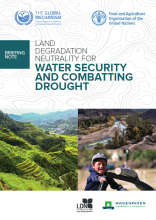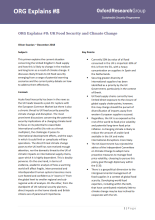Land Library
Welcome to the Land Portal Library. Explore our vast collection of open-access resources (over 74,000) including reports, journal articles, research papers, peer-reviewed publications, legal documents, videos and much more.
/ library resources
Showing items 1 through 9 of 27.The demand for additional agricultural land is expected to rise by approximately 50 per cent by 2050 on a global level, and agricultural land of high quality needs to be preserved to ensure future food security. However, agricultural land per capita is decreasing.
As water is the most disruptive element in the ongoing climate crisis, how land is managed plays a major role in taming this disruption. This publication shows that avoiding, reducing and reversing land degradation can have positive long-term gains in water security.
More than 113 million people across 53 countries experienced acute hunger requiring urgent food, nutrition and livelihoods assistance (IPC/CH Phase 3 or above) in 2018.
Increasing food production without further harming biodiversity is a key challenge of contemporary societies. In this paper, we assess trade-offs between agricultural output and two key agri-environmental indicators in four contrasting scenarios for Europe in 2040.
Land is already under growing human pressure and climate change is adding to these pressures.
This primer explains the current situation concerning the United Kingdom’s food supply and how this is likely to change in the medium and long term as a result of climate change.
This year's 2nd edition of the European Security and Defence Union journal is looking into climate change as global security and humanitarian challenge.
We assess the production impacts of a 100% conversion to organic agriculture in England and Wales using a large-scale linear programming model. The model includes a range of typical farm structures, scaled up across the available land area, with the objective of maximising food production.
This new report by the PBL Netherlands Environmental Assessment Agency in collaboration with the Clingendael Institute and other Dutch research institutes points to pressure on security and migration arising from too litt






